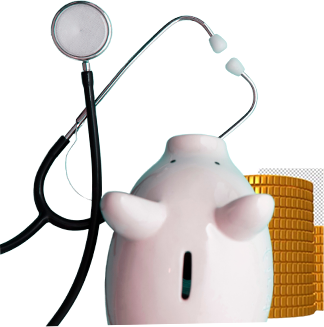PERSONALIZED DIET PLAN FROM
Nutritionist for Weight Lifting

Contact Us
A nutritionist for weightlifting is essential to maximize performance and reach fitness goals. If you intend to incorporate weight lifting into your daily routine, it is highly recommended that you have a nutritionist by your side. Athletes make meal regimens to get enough protein and calories. It helps athletes build muscle, mend tissues, and stay energized. A balanced diet promotes immune function, overall health, and illness prevention. Dietitians modify recommendations based on weight lifting goals, body type, and metabolism. Nutritionists help weightlifters focus on nutrient-dense diets, hydration, and meal timing to improve strength, endurance, and recovery.

Why Work with a Nutritionist for Weight Lifting?
Working with a dietitian for weightlifters can improve your health and performance. Nutritionists will customize meal regimens to meet each person’s macronutrient and micronutrient demands. Protein builds and repairs muscles, and calories fuel exercise and recovery.
Consulting a nutritionist for weight lifting help you modify your diet plan considering body type, metabolism, and weightlifting goals. They create fat-loss, muscle-building, and strength-building strategies. Good nutrition enhances immunity, reduces injury risk, and speeds healing. Nutritionists help players achieve their goals swiftly and permanently by focusing on nutritious foods and personalized diet plans. Dieticians advise players on pre- and post-workout eating times to maximize nutrition. Weightlifters are also advised to stay hydrated so they can perform well.
Working with a dietitian and nutritionist will benefit your body and mind. The support and inspiration they provide will help you stick to your diet goals. Nutritionists can improve results and enjoy weightlifting as a whole.
Key Nutritional Aspects for Weight Lifting:
Let’s take a look at some of the key nutritional components that will assist you during your weight-lifting journey:
- Protein: Muscle repair and growth require protein. Give your body 1.6-2.2 grams of protein per kilogram daily. These include lean meats, fish, dairy, legumes, and plant-based proteins like tofu and tempeh.
- Carbohydrates: Fuel workouts and replace glycogen. Whole grains, fruits, vegetables, and legumes are complex carbohydrates. Carbs post-workout improve muscle recovery.
- Fats: Vital for hormone production, notably testosterone, which builds muscle. Avocados, almonds, seeds, and olive oil are healthful fats. Aim for 20-30% of daily calories from fat.
- Hydration: Essential for performance and recovery. Drink water daily and more during tough workouts. Dehydration hinders muscle recovery, which is why you need to make sure to empty your water bottle.
- Vitamins and minerals: Essential for nerve, muscle, and energy synthesis. Key nutrients include calcium, vitamin D, magnesium, potassium, and iron. A varied diet with plenty of fruits and vegetables can meet these demands.
- Pre-Workout Nutrition: Performance can be improved by eating a balanced breakfast with carbs and protein 2-3 hours before lifting. If needed, eat 30-60 minutes before a workout, quick-digesting carbs and modest protein.
- Post-Workout Nutrition: After exercise, eat protein and carbs within 30-60 minutes to replace glycogen and repair muscle. Many propose a 3:1 carb-to-protein ratio. This ratio is crucial for promoting muscle growth and repair. Give your body 1.6-2.2 grams of protein per kilogram daily. These include lean meats, fish, dairy, legumes, and plant-based proteins like tofu and tempeh.

Common Diet Plans for Weight Lifters:
At Qua Nutrition clinics, our dieticians recommend tailored diet plans for weight lifters. Here are common diet plans for weight lifters:
- Bulking diet: One goal of the bulking diet is to help you gain muscle mass. It is important to remember that the diet includes things that are high in calories, protein, and carbs. Some of these are fruits, veggies, nuts, seeds, dairy, lean meats, and whole grains. Dairy items can also be added. It is suggested that you eat various meals and snacks while you are awake to meet your calorie goals. To keep from gaining too much weight, slowly increase the number of calories you eat.
- Cutting diet: The goal of this diet is to lose fat without losing muscle. The parts generally have a moderate amount of protein, fewer carbs, and a controlled amount of calories. Lean proteins, low-carb vegetables, healthy fats, and some fruits are all things that you can eat. Regular meals with limited portion sizes are what you should do. Keep your calorie shortage small to help you lose fat.
- Maintenance diet: The goal is to keep your body fat and muscle strength the same. Make sure you get the right amount of protein, carbs, and fats. Eat healthy fats, fruits, veggies, lean meats, and whole grains. To stay healthy and get better, you should stick to a regular meal plan. Change how many calories you eat based on how active you are.
- High-protein diet: The goal of this diet is to help muscles grow and heal. The food you eat should have a healthy fat content, a modest amount of carbs, and a high protein content. Foods like chicken, fish, eggs, cheese, beans, and protein supplements should be on the list. Eat regularly and make sure you get enough energy. Make sure you’re drinking enough water to help your body use protein.
- Low-carb diet: The diet aims to get rid of body fat and make muscles stand out more. Some of the parts are eating low-carb, high-protein, and good fats. Eat things like meat, fish, eggs, nuts, seeds, and veggies that are low in carbs. Make sure you eat regular foods that are low in carbs. Check your energy levels to keep from getting tired.
- Ketogenic diet: To lose fat and use energy more efficiently, the idea is to get into ketosis. Add things that are high in fats, moderately high in protein, and very low in carbs. The best foods would be meat, fish, eggs, dairy, nuts, seeds, and oils that are high in fat. Eat regular foods that are very low in carbs. Slowly make the switch to avoid getting the “keto flu.”
Recommended Foods for Weight-Lifting Nutrition:
Here are some food recommendations to support weight-lifting nutrition:
- Lean proteins: Chicken, turkey, lean meat, fish, tofu, and beans. Essential for muscle growth and repair.
- Complex carbohydrates: Oats, sweet potatoes, brown rice, quinoa, and whole-grain bread. Helps maintain energy for tough workouts.
- Healthy fats: Avocados, almonds, seeds, olive oil, and salmon/fatty fish. Promotes hormone and joint health.
- Vegetables: Spinach, kale, broccoli, bell peppers, and carrots. These veggies are rich in vitamins, minerals, and antioxidants.
- Fruits: Apples, bananas, oranges, berries. These fruits provide individuals with vitamins, fiber, and energy.
- Dairy or alternatives: Fortified plant-based milk, Greek yogurt, cottage cheese, and milk. High in protein and calcium.
- Hydration: Coconut water, electrolytes, and water. Hydration is essential for muscle rehabilitation.
- Supplements: BCAAs, creatine, fish oil, and protein powders. Supplement, not replace entire food.


How a Nutritionist Can Help You with Weight Lifting?
A nutritionist for weight lifting can give you personalized advice on how to improve your weightlifting and healing. They look at your specific needs and make a diet plan that makes sure you get the right amount of macronutrients (like proteins, carbs, and fats) and micronutrients (like vitamins and minerals) to fuel your workouts and help your muscles heal. Nutritionists can recommend pre- and post-workout meals, snacks, and hydration to maximize energy and healing. In addition, they can help you find and choose the right nutrients to add to your diet if you need them. A nutritionist monitors your progress and implements necessary adjustments to ensure you meet your weight-lifting goals, enhance your performance, and maintain your overall health. Personalized diet support can have a big effect on your long-term success and health, no matter how much weight you lift or how new you are to it.
Why Choose QUA Nutrition for Weight Lifting?
QUA Nutrition’s tailored and evidence-based weightlifting nutrition can boost performance and results. Our experienced nutritionists customize diet regimens for your metabolism, lifestyle, and muscle gain goals. To maximize muscle growth and recovery, we balance macronutrients (proteins, carbs, and fats) with micronutrients (vitamins and minerals). QUA Nutrition has dedicated nutritionists for weight lifting candidates, offering specialist supplement advice to complement your diet and workout. We keep you on pace to reach your weight-lifting goals by evaluating your progress and changing your nutrition plan. Professional advice from QUA Nutrition emphasizes sustainable ways to improve your body and well-being.
Contact us now to get help from our experts in your weight-lifting journey!

Our Success Stories
Q: How does QUA Nutrition differ from other nutrition services?
A: Our individualized, evidence-based approach and ongoing support distinguish us from generic dietary recommendations.
How can QUA Nutrition aid weight loss and muscle gain?
A: A balanced nutrition plan ensures enough protein for muscle development and a slight calorie deficit for weight loss.
Q: Should I eat before or after my workout, and what should I eat?
A: A balanced lunch containing protein and carbs should be eaten 2-3 hours before exercise. For recovery, eat protein and carbs within 30-60 minutes of exercise.
Q: How do QUA Nutritionists customize meals?
A: We create a balanced diet plan based on your metabolism, lifestyle, and muscle gain goals.
Q: How does working with QUA Nutrition help weight lifting?
A: Professional coaching, customized plans, and ongoing support help you succeed in weightlifting and stay healthy.


